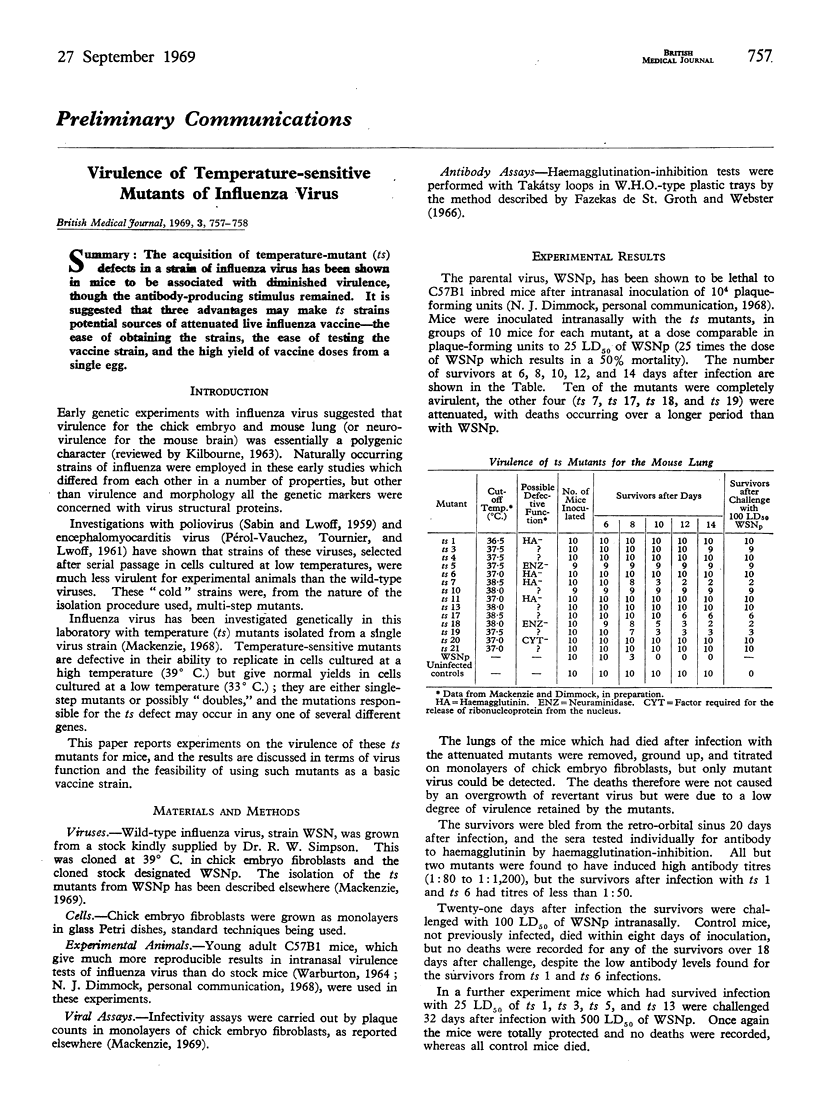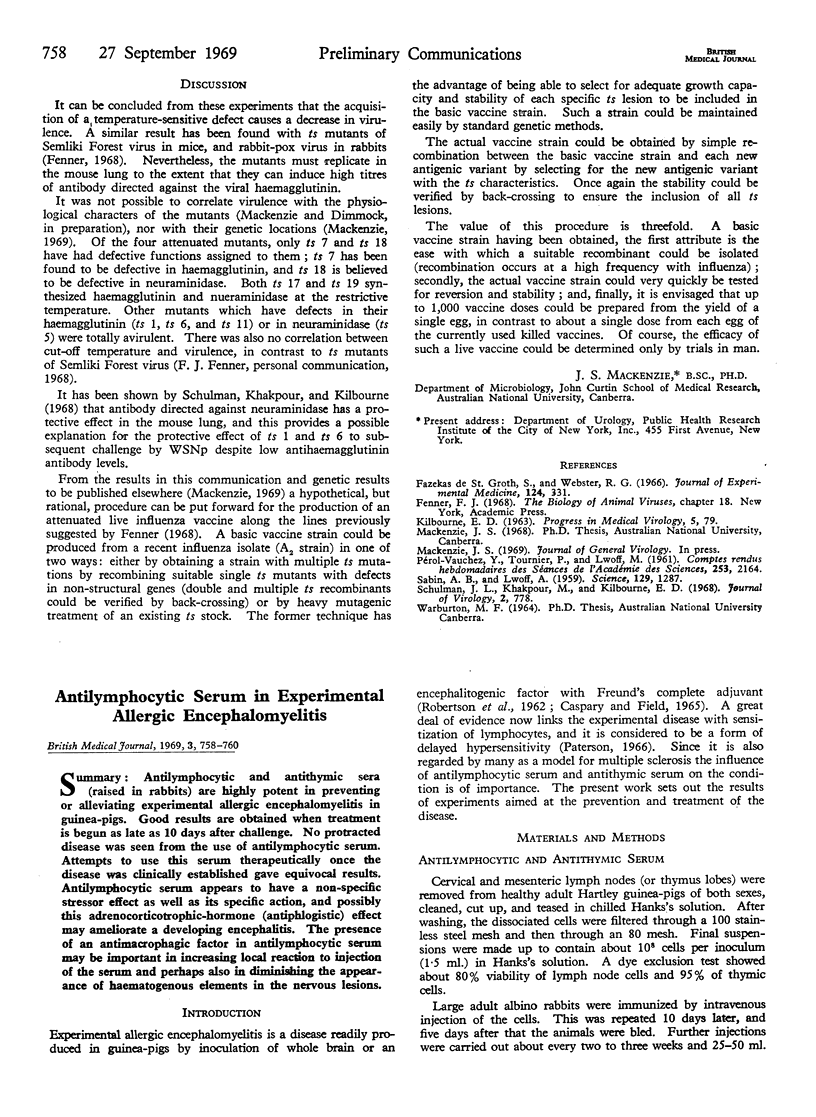Abstract
The acquisition of temperature-mutant (ts) defects in a strain of influenza virus has been shown in mice to be associated with diminished virulence, though the antibody-producing stimulus remained. It is suggested that three advantages may make ts strains potential sources of attenuated live influenza vaccine—the ease of obtaining the strains, the ease of testing the vaccine strain, and the high yield of vaccine doses from a single egg.
Full text
PDF

Selected References
These references are in PubMed. This may not be the complete list of references from this article.
- Fazekas de St Groth, Webster R. G. Disquisitions of Original Antigenic Sin. I. Evidence in man. J Exp Med. 1966 Sep 1;124(3):331–345. doi: 10.1084/jem.124.3.331. [DOI] [PMC free article] [PubMed] [Google Scholar]
- PEROL-VAUCHEZ Y., TOURNIER P., LWOFF M. [Attenuation of the virus of encephalomyocarditis of the mouse by culture at low temperature. Influence of hypo- and hyperthermia on the course of the experimental disease]. C R Hebd Seances Acad Sci. 1961 Nov 6;253:2164–2166. [PubMed] [Google Scholar]
- Schulman J. L., Khakpour M., Kilbourne E. D. Protective effects of specific immunity to viral neuraminidase on influenza virus infection of mice. J Virol. 1968 Aug;2(8):778–786. doi: 10.1128/jvi.2.8.778-786.1968. [DOI] [PMC free article] [PubMed] [Google Scholar]


